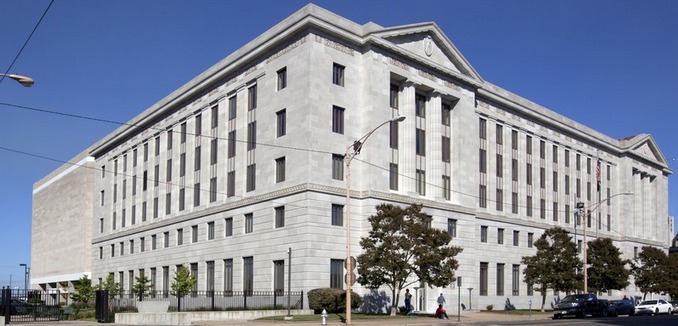A federal judge in Arkansas ruled that the state’s anti-boycott laws do not violate free speech and are constitutional, the Associated Press reported Wednesday.
United States District Judge Brian Miller ruled against the Arkansas Times, which had brought a suit against the state’s 2017 anti-boycott law.
The newspaper had asked the judge to block the law that required contractors doing business with the state to reduce their fees by 20%, if they did not sign a pledge not to boycott Israel.
In his ruling, Miller wrote that “before researching the issue, I thought the law required a different outcome than the one ultimately reached.” However in his conclusion, he acknowledged that “engaging in a boycott of Israel, as defined by Act 710, is neither speech nor inherently expressive conduct,” and is therefore “not protected by the First Amendment.”
“The Times may write and send representatives to meetings, speeches, and picketing events in opposition to Israel’s policies, free from any state interference,” Miller wrote in his ruling. “It may even call upon others to boycott Israel, write in support ofsuch boycotts, and engage in picketing and pamphleteering to that effect.” None of these expressions of free speech are constrained by the anti-boycott law.
Legal scholar, Eugene Kontorovich, summarized the reasoning behind the court’s ruling, “Federal court rules that anti-BDS contracting laws do not violate First Amendment; mere refusal to do business with Israelis is not speech under Sup Ct. precedent.”
In July 2017, Kontorovich explained further that the proposed legislation was nothing more than an updating of existing legislation that prohibited American companies from participating in the Arab boycott of Israel. However, given the efforts of the United Nations Humans Rights Council to establish a blacklist of companies doing business in the West Bank, Kontorovich argued that the law needed updating.
“The old law already forbids ‘support’ for foreign state boycotts of Israel, and the many regulations enacted pursuant to the law already define ‘support’ to be limited to ‘certain specified actions’ that go well beyond merely ‘speech’ support,” Kontorovich wrote. “The new bill does not change or alter the meaning of ‘support.’ It simply clarifies the list of foreign boycotts covered by the law.”
[Photo: Carol M. Highsmith (1946–) / WikiCommons ]




